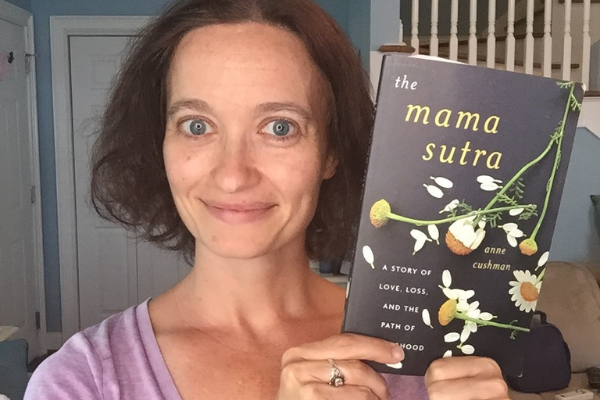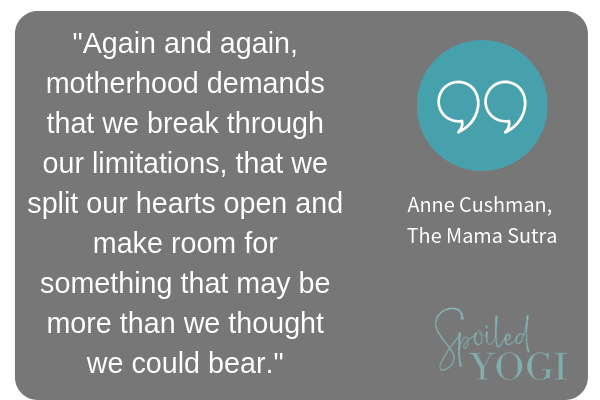
Teaching prenatal and postnatal yoga is one of the most rewarding things I’ve ever done in my life. But, it’s not always easy. One of the hardest things about teaching prenatal yoga is that there are inevitably times when my students experience heartbreaking losses. Those losses are more often than most people know.
There’s the eager mama who signs up for my six-week prenatal yoga series the moment she knows she’s expecting who emails me two weeks later with the sad news of her miscarriage. This is quite common, unfortunately. Far less common, though, is the mama who has carried her baby to term only to learn that, for some unexplainable reason, her baby no longer has a heartbeat.
There are no words.
So how does someone reply to these emails?
I offer my condolences. I offer my support in whatever form they might need—an ear to listen, a shoulder to cry on. I share my own experiences with miscarriage and loss when it seems appropriate, and I try to put these moms in touch with others I know who have been through something similar
Book Review: The Mama Sutra: A Story of Love, Loss and the Path of Motherhood
Now that I’ve read Anne Cushman’s book The Mama Sutra: A Story of Love, Loss, and the Path of Motherhood*, I’ll start recommending it, too. (Thanks for the recommendation, Yogaland Podcast!) *Affiliate link
In this ground-breaking book (yes, I’m calling it!), she describes losing her first daughter, who was stillborn, her anxiety about getting pregnant again, being a working single mom, and all the lessons she learned about herself and the world that we live in along the way.
She doesn’t gloss over it. She doesn’t try to explain away the raw, immeasurable pain of losing a child or the difficulties of parenting in a culture that doesn’t always support women. And she certainly doesn’t attempt to say that her meditation and yoga practice made everything better again—nothing makes that kind of loss better.
You don’t have to experience the loss of a child, though, to relate to how she describes motherhood as a spiritual journey.
For me, it was validating to read about how she, too, had scoured yogic texts and found very little about the practice of mothering. After all, she notes most of these texts were written by men and monastic men at that.
Anne’s story is fascinating because in so many ways she’s lived a life that so many would consider out of reach. But the struggles that she describes are so relatable.
(We’re all the same, mamas. And we’re all in this together.)
She took pilgrimages to India to study yoga and Buddhism in her 20s. And she yoga and meditation at one of the most famous Buddhism retreat centers in the country, Spirit Rock Meditation Center. She wrote books about her experiences and edited yoga and mindfulness magazines. She meditated in the very spot that the Buddha was said to have become the Buddha.
But as she reflects back on it all it was her experiences, it was being a mother that has been the most profound spiritual practice.
See also Yoga Inspiration: 5 Things Yoga Taught Me about Motherhood
Motherhood as a Spiritual Practice

For so many of us, we’re just trying to survive the grueling day-to-day responsibilities of being a parent and householder.
But what could be better training for finding calm amidst life’s chaos than learning to take deep breaths during sleepless nights, temper tantrums, health worries, rocky relationships, and the million other things that plague mothers today.
This book was such a wonderful read that reminded me that I’m not alone. The writing is absolutely beautiful, and so was the reminder that no matter what we’ve chosen for our lives, we can still choose the path of self-reflection, mindfulness, and service.
It’s an incredibly real, honest account at how mothering can be so much more than the cliche of the messy bun and yoga pants-clad trips to Target between school drop offs and pick ups.
Mothers are so much stronger and fiercer and have a bigger impact on the world than most people (including mothers themselves) will ever understand.
As Anne puts it in The Mama Sutra:
Again and again, motherhood demands that we break through our limitations, that we split our hearts open and make room for something that may be more than we thought we could bear. In that sense, the labor in which we give birth is simply a rehearsal for something we mothers must do over and over; turn ourselves inside out, and then let go.
I’d love to hear what you think! Has motherhood been like a spiritual practice for you? Have you ever thought of it that way?

Comments